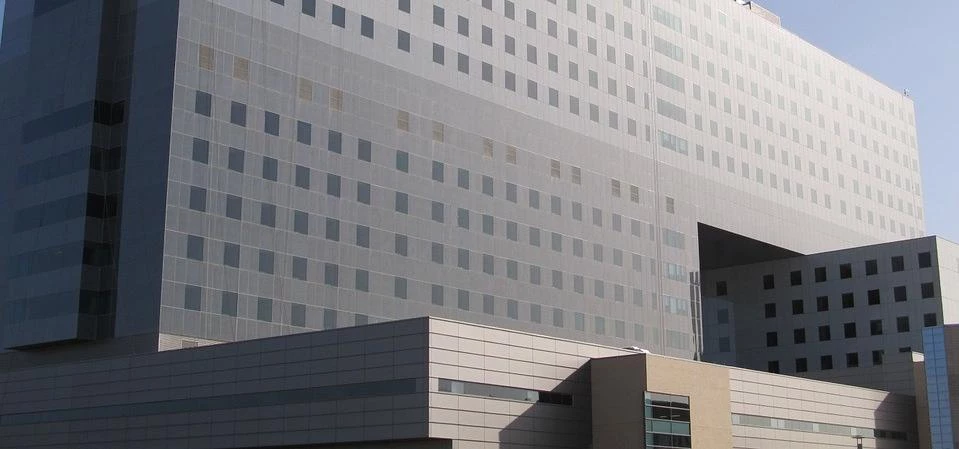
Partner Article
Modular Building Can Save the Medical Industry Money
The National Health Service (NHS) in the UK is under pressure.
With a population that is living longer, the health issues that doctors are diagnosing and treating vary widely. Expectations are growing too - patients now enter a hospital, clinic or GP surgery expecting the best of care and the latest technology with which to treat them.
But the infrastructure of the NHS and other healthcare providers is such that the budget is under such severe financial pressure, and maintaining buildings is a financial struggle. The means and ability to build from scratch or add extensions to current properties via traditional building methods can be financially out of reach.
There has been a need for some time to think outside the box in terms of constructions and expansion. As specialist in modular design and build, MTX Contracts have worked on projects across the UK for over 20 years and are all too aware of the benefits that modular design and construction bring to the medical industry.
So, as patient numbers grow and healthcare staff ratios expand, modular design and build will bring four key benefits.
What is modular building?
With modular construction, the main components of the building are made and assembled off-site. This allows more control over the construction process, time and money.
Once the buildings or units are complete, they are transported to the site and set up, a process that is simple and relatively easy.
Each piece of the structure is called a module and these units fit together either side by side, stacked on top of each other or end to end.
They also fit easily with existing buildings meaning the flow of work and people from one end to the other is not compromised. This is a far more cost-effective means of adding more room to a hospital or clinic as well as other benefits.
#1 Speed
Modular construction significantly decreases the amount of time from design to build, to installation and use.
The initial stages – design, planning permission and site preparation – take the same amount of time but as the construction happens in tandem with site preparation, there are significant time savings. Site restoration after installation takes less time too as there is far less construction work and disruption on site with this method of building.
It wouldn’t be too far-fetched to say that modular building takes half the time as traditional construction methods.
#2 High standards of finish
A quality build is critical in a healthcare setting.
Any hospital is a busy place. Each day, hundreds of patients pass through a healthcare facility, with medical technology also being regularly upgraded, the unit in which it is housed may also need to change and adapt.
There is no sacrificing of build nor finish quality when it comes to modular construction. Modular units are all built to high specifications, using only the best in quality and sustainable materials. The same building codes are applied to modular units as they are to traditionally built properties.
And this high quality also means that prefabricated units are more than capable of withstanding shipping or delivery from warehouse to their final destination.
#3 Flexibility
The beauty of modular units is that they can be short or long additions to a hospital, clinic or surgery. Specialist modular unit construction companies also offer hiring of either standard or bespoke modular units too, affording even more flexibility at a time that an NHS trust needs it most.
Modular buildings can also be designed to match existing buildings, providing a seamless extension between one ward and another, for example. Its exterior can look like a conventional building or as in some cases, the exterior is finished in such a way that is look cutting edge and modern.
And modular units can offer specialist accommodation too, from modern, cutting-edge mortuary and bereavement centres, to operating theatres, critical care units and more. These are more than just prefabricated boxes.
#4 Cost-effective
Clearly, the more money an NHS health board can save on maintaining its buildings, expanding current facilities and building news ones the better.
Modular buildings are incredibly cost effective. This is for many reasons, including the types of materials used but the biggest factor that contributes to savings is time.
Built twice as fast as a conventional building, it can be utilised twice as quick and with some projects, there is a possibility of taking possession of a complete building, known as a turnkey solution.
Modular buildings can be used across a variety of medical situations, from hospitals to doctor’s surgeries.
Think outside the box – think modular building.
MTX Contracts have been providing modular building solutions to NHS and private healthcare providers across the UK for over 20 years.
This was posted in Bdaily's Members' News section by James Trotter .








 Why investors are still backing the North East
Why investors are still backing the North East
 Time to stop risking Britain’s family businesses
Time to stop risking Britain’s family businesses
 A year of growth, collaboration and impact
A year of growth, collaboration and impact
 2000 reasons for North East business positivity
2000 reasons for North East business positivity
 How to make your growth strategy deliver in 2026
How to make your growth strategy deliver in 2026
 Powering a new wave of regional screen indies
Powering a new wave of regional screen indies
 A new year and a new outlook for property scene
A new year and a new outlook for property scene
 Zero per cent - but maximum brand exposure
Zero per cent - but maximum brand exposure
 We don’t talk about money stress enough
We don’t talk about money stress enough
 A year of resilience, growth and collaboration
A year of resilience, growth and collaboration
 Apprenticeships: Lower standards risk safety
Apprenticeships: Lower standards risk safety
 Keeping it reel: Creating video in an authenticity era
Keeping it reel: Creating video in an authenticity era